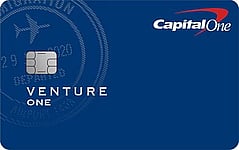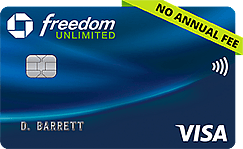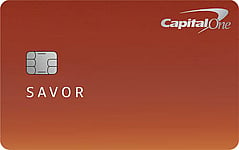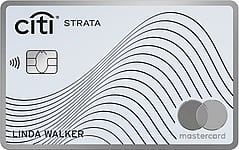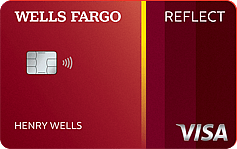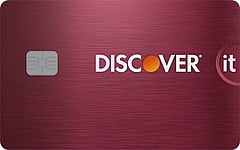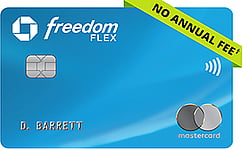Best No Annual Fee Credit Cards of February 2026
Many or all of the products on this page are from partners who compensate us when you click to or take an action on their website, but this does not influence our evaluations or ratings. Our opinions are our own.
Many or all of the products on this page are from partners who compensate us when you click to or take an action on their website, but this does not influence our evaluations or ratings. Our opinions are our own.
Paying an annual fee on a credit card can be worth it if it gets you substantially better benefits. But in many cases, credit cards that don’t charge annual fees offer better long-term value than those that do. No-annual-fee credit cards make it easy to come out ahead, regardless of your spending.
Our pick for: Simple travel rewards
Apply Nowon Capital One's websiteon Capital One's websiteAnnual fee$0Rewards rate1.25x-5xMilesIntro offer40,000milesRegular APR18.49%-28.49% Variable APRRecommended credit scoreRewards breakdown
5xMiles on hotels, vacation rentals and rental cars booked through Capital One Travel.1.25xMiles on every purchase, every day.Card details
- Earn a bonus of 40,000 miles once you spend $1,000 on purchases within 3 months from account opening, equal to $400 in travel
- 18.49% - 28.49% variable APR; this product does not have an introductory APR period, 4% fee on amounts transferred at a promotional APR that Capital One may offer you
- $0 annual fee and no foreign transaction fees
- Earn unlimited 1.25X miles on every purchase, every day
- Miles won't expire for the life of the account and there's no limit to how many you can earn
- Earn 5X miles on hotels, vacation rentals and rental cars booked through Capital One Travel
- Use your miles to get reimbursed for any travel purchase—or redeem by booking a trip through Capital One Travel
- Transfer your miles to your choice of 15+ travel loyalty programs
- Top rated mobile app
- View Rates & Fees
NerdWallet's take
The Capital One VentureOne Rewards Credit Card - Miles Boost is a solid choice for getting started with travel rewards, as it earns hassle-free miles on every purchase. The card also features a welcome bonus.
Read full reviewProsRewards: 1.25 miles per $1 spent on most purchases, and 5 miles per $1 on hotels, vacation rentals and car rentals booked through Capital One Travel.
Miles earned can be transferred to Capital One’s partner loyalty programs.
Welcome bonus: Earn a bonus of 40,000 miles once you spend $1,000 on purchases within 3 months from account opening, equal to $400 in travel.
No foreign transaction fee.
$0 annual fee.
Cons2026 Best all-purpose cash back credit card
Apply Nowon Wells Fargo's websiteon Wells Fargo's websiteAnnual fee$0Rewards rate2%CashbackIntro offer$200Recommended credit scorePurchase intro APR0% intro APR for 12 months from account opening on purchasesBalance transfer intro APR0% intro APR for 12 months from account opening on qualifying balance transfersRegular APR18.49%, 24.49%, or 28.49% Variable APRRewards breakdown
2%Unlimited Cash rewards on purchases.Card details
- Apply Now to take advantage of this offer and learn more about product features, terms and conditions.
- Earn a $200 cash rewards bonus after spending $500 in purchases in the first 3 months.
- Earn unlimited 2% cash rewards on purchases.
- 0% intro APR for 12 months from account opening on purchases and qualifying balance transfers. 18.49%, 24.49%, or 28.49% variable APR thereafter; balance transfers made within 120 days qualify for the intro rate and fee of 3% then a BT fee of up to 5%, min: $5.
- $0 annual fee.
- No categories to track or remember and cash rewards don’t expire as long as your account remains open.
- Find tickets to top sports and entertainment events, book travel, make dinner reservations and more with your complimentary 24/7 Visa Signature® Concierge.
- Up to $600 of cell phone protection against damage or theft. Subject to a $25 deductible.
- View Rates & Fees
NerdWallet's take
The Wells Fargo Active Cash® Card stands out for its high flat rate on all qualifying spending, which is among the best for products in its class. It also offers a welcome bonus and an introductory interest-free period.
Read full reviewPros$0 annual fee.
Rewards: Unlimited 2% cash back on all eligible purchases.
Welcome bonus: Earn a $200 cash rewards bonus after spending $500 in purchases in the first 3 months.
Intro APR period.
Secondary cell phone protection.
$0 annual fee.
ConsYou can find higher cash-back rates in specific, popular spending categories, if you're OK with keeping track of tiered or rotating reward structures.
It charges a 3% foreign transaction fee, which means it’s not ideal for traveling abroad.
Our pick for: All-around cash back
Apply Nowon Chase's websiteon Chase's websiteAnnual fee$0Rewards rate1.5%-5%CashbackIntro offer$200Recommended credit scorePurchase intro APR0% intro APR on purchases for 15 monthsBalance transfer intro APR0% intro APR on balance transfers for 15 monthsRegular APR18.24%-27.74% Variable APRRewards breakdown
5%Cash back on travel purchased through Chase Travel℠.3%Cash back on drugstore purchases.3%Cash back on dining at restaurants, including takeout and eligible delivery services.1.5%Cash back on all other purchases.Card details
- Earn a $200 Bonus after you spend $500 on purchases in your first 3 months from account opening
- Enjoy 5% cash back on travel purchased through Chase Travel℠, our premier rewards program that lets you redeem rewards for cash back, travel, gift cards and more; 3% cash back on drugstore purchases and dining at restaurants, including takeout and eligible delivery service, and 1.5% on all other purchases.
- No minimum to redeem for cash back. You can choose to receive a statement credit or direct deposit into most U.S. checking and savings accounts. Cash Back rewards do not expire as long as your account is open!
- Enjoy 0% Intro APR for 15 months from account opening on purchases and balance transfers, then a variable APR of 18.24% - 27.74%.
- No annual fee – You won't have to pay an annual fee for all the great features that come with your Freedom Unlimited® card
- Keep tabs on your credit health, Chase Credit Journey helps you monitor your credit with free access to your latest score, alerts, and more.
- Member FDIC
- View Rates & Fees
NerdWallet's take
The Chase Freedom Unlimited® delivers ongoing value with its high cash-back rewards in everyday spending categories. Plus, it features a solid intro APR period and a bonus offer.
Read full reviewProsRewards in useful bonus categories: 5% cash back on travel booked through Chase; 3% back at restaurants and drugstores; and 1.5% back on other purchases.
Earn a $200 Bonus after you spend $500 on purchases in your first 3 months from account opening.
Intro APR period.
$0 annual fee.
ConsJuggling multiple bonus categories and rates can be complicated compared to a card that earns a flat rewards rate.
It charges a foreign transaction fee, so it's not a good companion abroad.
Our pick for: Hotel card
Apply Nowon American Express' websiteon American Express' websiteAnnual fee$0Rewards rate3x-7xPointsIntro offer80,000pointsAPR19.49%-28.49% Variable APRRecommended creditRewards breakdown
7xPoints for each dollar of eligible purchases charged directly with hotels and resorts within the Hilton portfolio.5xPoints for each dollar of eligible purchases at U.S. restaurants.5xPoints for each dollar of eligible purchases at U.S. supermarkets.5xPoints for each dollar of eligible purchases at U.S. gas stations.3xPoints for all other eligible purchases on your Card.Card details
- Earn 80,000 Hilton Honors Bonus Points with the Hilton Honors American Express Card after you spend $2,000 in purchases on the Card within your first 6 months of Card Membership.
- No Annual Fee.
- Earn 7X Hilton Honors Bonus Points for each dollar of eligible purchases charged on your Card directly with hotels and resorts within the Hilton portfolio.
- Earn 5X Points per dollar on purchases at U.S. restaurants, at U.S. supermarkets, and at U.S. gas stations.
- Earn 3X Points for all other eligible purchases on your Card.
- Enjoy complimentary Hilton Honors™ Silver Status with your Card. Silver Status gives you a 20% Bonus on Base Points you earn on every stay, plus, you receive the fifth night free when you book a standard room stay with 100% Points.
- Points don't expire while your Hilton Honors American Express Card is active and in good standing.
- No Foreign Transaction Fees. Enjoy international travel without additional fees on purchases made abroad.
- Pay It Plan It®: Pay It® lets you tap in the American Express® App to quickly pay for small purchase amounts throughout the month and still earn rewards the way you usually do. Plan It® gives you the option to split up big purchases into equal monthly payments with a fixed fee. You’ll know upfront exactly how much you’ll pay.
- Whenever you travel more than 100 miles from home, Global Assist® Hotline is available for 24/7 emergency assistance and coordination services, including medical and legal referrals, emergency cash wires, and missing luggage assistance. Card Members are responsible for the costs charged by third-party service providers. Other terms and conditions apply.
- Apply with confidence. Know if you're approved for a Card with no impact to your credit score. If you're approved and you choose to accept this Card, your credit score may be impacted.
- Terms Apply.
- View Rates & Fees
NerdWallet's take
The Hilton Honors American Express Card earns high rewards on Hilton purchases and in common spending categories as well. It comes with a welcome bonus. Terms apply.
Read full reviewProsRewards: 7 bonus points per $1 spent on eligible Hilton purchases; 5 points per $1 at U.S. restaurants, U.S. supermarkets and U.S. gas stations; and 3 points per $1 elsewhere.
Automatic Hilton Honors™ Silver status.
Welcome bonus: Earn 80,000 Hilton Honors Bonus Points with the Hilton Honors American Express Card after you spend $2,000 in purchases on the Card within your first 6 months of Card Membership. Terms Apply.
No foreign transaction fee.
$0 annual fee.
Terms apply.
ConsAlthough you earn a lot of points per dollar spent, the per-point value is relatively low.
No annual complimentary night like you'd find on many cards with annual fees.
No introductory APR period.
2026 Best credit card for dining
Apply Nowon Capital One's websiteon Capital One's websiteAnnual fee$0Rewards rate1%-8%CashbackIntro offer$200Recommended credit scorePurchase intro APR0% intro on purchases for 12 monthsBalance transfer intro APR0% intro on balance transfers for 12 months; balance transfer fee appliesRegular APR18.49%-28.49% Variable APRRewards breakdown
8%Cash back on Capital One Entertainment purchases.5%Cash back on hotels, vacation rentals and rental cars booked through Capital One Travel.3%Cash back on dining.3%Cash back on entertainment.3%Cash back on popular streaming services.3%Cash back at grocery stores (excluding superstores like Walmart® and Target®).1%Cash back on all other purchases.Card details
- Earn a one-time $200 cash bonus once you spend $500 on purchases within the first 3 months from account opening
- $0 annual fee and no foreign transaction fees
- Earn unlimited 3% cash back at grocery stores (excluding superstores like Walmart® and Target®), on dining, entertainment and popular streaming services, plus 1% on all other purchases
- Earn 8% cash back on Capital One Entertainment purchases
- Earn unlimited 5% cash back on hotels, vacation rentals and rental cars booked through Capital One Travel
- No rotating categories or sign-ups needed to earn cash rewards; plus cash back won't expire for the life of the account and there's no limit to how much you can earn
- 0% intro APR on purchases and balance transfers for 12 months; 18.49% - 28.49% variable APR after that; balance transfer fee applies
- Top rated mobile app
- View Rates & Fees
NerdWallet's take
The Capital One Savor Cash Rewards Credit Card earns bonus rewards in some of the top spending categories for many households, without complicated redemption rules or any cost of card ownership. It also features a strong intro APR period and solid welcome bonus.
Read full reviewProsRewards: 3% cash back on dining, on entertainment, at grocery stores and on eligible streaming services; 8% back on Capital One Entertainment purchases; 5% cash back on hotels, vacation rentals and rental cars booked through Capital One Travel; and 1% back on other purchases.
Rewards can be transferred to Capital One’s Venture cards.
Welcome bonus: Earn a one-time $200 cash bonus once you spend $500 on purchases within the first 3 months from account opening.
Intro APR period.
No foreign transaction fee.
$0 annual fee.
ConsOur pick for: Simplicity + high rate
Apply Nowon Citibank's applicationon Citibank's applicationAnnual fee$0Rewards rate2%-5%CashbackIntro offer$200Recommended credit scoreBalance transfer intro APR0% intro APR on balance transfers for 18 monthsRegular APR17.49%-27.49% Variable APRRewards breakdown
2%Cash back on every purchase with unlimited 1% cash back when you buy, plus an additional 1% as you pay for those purchases.Card details
- Earn $200 cash back after you spend $1,500 on purchases in the first 6 months of account opening. This bonus offer will be fulfilled as 20,000 ThankYou® Points, which can be redeemed for $200 cash back.
- Earn 2% on every purchase with unlimited 1% cash back when you buy, plus an additional 1% as you pay for those purchases. To earn cash back, pay at least the minimum due on time. Plus, earn 5% total cash back on hotel, car rentals and attractions booked with Citi Travel.
- Balance Transfer Only Offer: 0% intro APR on Balance Transfers for 18 months. After that, the variable APR will be 17.49% - 27.49%, based on your creditworthiness.
- Balance Transfers do not earn cash back. Intro APR does not apply to purchases.
- If you transfer a balance, interest will be charged on your purchases unless you pay your entire balance (including balance transfers) by the due date each month.
- There is an intro balance transfer fee of 3% of each transfer (minimum $5) completed within the first 4 months of account opening. After that, your fee will be 5% of each transfer (minimum $5).
- View Rates & Fees
NerdWallet's take
The Citi Double Cash® Card is one of the best rewards cards on the market for its high rate on all purchases and its ease of use. Plus, cardholders also get a welcome bonus and an intro APR period on balance transfers.
Read full reviewProsRewards: 1% back on every dollar you spend and another 1% back when you pay off those purchases.
Welcome bonus: Earn $200 cash back after you spend $1,500 on purchases in the first 6 months of account opening. This bonus offer will be fulfilled as 20,000 ThankYou® Points, which can be redeemed for $200 cash back.
Intro APR period for balance transfers.
$0 annual fee.
ConsNo intro APR period on purchases.
You can find higher cash-back rates in specific, popular spending categories, if you're OK with keeping track of tiered or rotating reward structures.
It charges a foreign transaction fee, so it's not ideal for using internationally.
Our pick for: Small business
Apply Nowon Chase's websiteon Chase's websiteAnnual fee$0Rewards rate1%-5%CashbackIntro offer$750Recommended credit scorePurchase intro APR0% intro APR on purchases for 12 monthsRegular APR16.74%-24.74% Variable APRRewards breakdown
5%Cash back on the first $25,000 spent in combined purchases at office supply stores each account anniversary year.5%Cash back on the first $25,000 spent in combined purchases on internet, cable and phone services each account anniversary year.5%Cash back on Lyft rides through 9/30/27.2%Cash back on the first $25,000 spent in combined purchases at gas stations each account anniversary year.2%Cash back on the first $25,000 spent in combined purchases at restaurants each account anniversary year.1%Cash back on all other card purchases with no limit to the amount you can earn.Card details
- Earn $750 when you spend $6,000 on purchases in the first three months after account opening
- Earn 5% cash back on the first $25,000 spent in combined purchases at office supply stores and on internet, cable and phone services each account anniversary year
- Earn 2% cash back on the first $25,000 spent in combined purchases at gas stations and restaurants each account anniversary year. Earn 1% cash back on all other purchases
- With Zero Liability you won't be held responsible for unauthorized charges made with your card or account information.
- No Annual Fee
- Redeem rewards for cash back, gift cards, travel and more through Chase Ultimate Rewards®.
- 0% introductory APR for 12 months on purchases
- Earn 5% total cash back on Lyft rides through 9/30/27.
- Member FDIC
- View Rates & Fees
NerdWallet's take
Any small business that spends a bundle on telecom services and/or office supplies can benefit from this card's generous rewards in these categories. The Ink Business Cash® Credit Card also comes with a great welcome bonus and an intro APR period.
Read full reviewProsRewards: 5% cash back on the first $25,000 spent in combined purchases each account anniversary year at office supply stores and on cable, internet and phone service. Also, earn 2% cash back on the first $25,000 spent in combined purchases each account anniversary year at gas stations and restaurants, and 1% cash back on all other spending.
Welcome bonus: Earn $750 when you spend $6,000 on purchases in the first three months after account opening.
Intro APR period on purchases.
$0 annual fee.
ConsBonus rewards are capped and may not be a good fit for all businesses.
It charges a foreign transaction fee.
Our pick for: Customization + flexibility
Apply Nowon Citibank's applicationon Citibank's applicationAnnual fee$0Rewards rate1x-5xPointsIntro offer20,000pointsRecommended credit scorePurchase intro APR0% intro APR on purchases for 15 monthsBalance transfer intro APR0% intro APR on balance transfers for 15 monthsRegular APR18.49%-28.49% Variable APRRewards breakdown
5xPoints for each $1 spent on Hotels, Car Rentals and Attractions booked on cititravel.com.3xPoints for each $1 spent in an eligible Self-Select Category of your choice.3xPoints for each $1 spent at Supermarkets.3xPoints for each $1 spent on Select Transit purchases.3xPoints for each $1 spent at Gas & EV Charging Stations.2xPoints for each $1 spent at Restaurants.1xPoint for each $1 spent on All Other Purchases.Card details
- Earn 20,000 bonus Points after spending $1,000 in the first 3 months of account opening.
- 0% Intro APR on balance transfers and purchases for 15 months; after that, the variable APR will be 18.49% - 28.49%, based on your creditworthiness. There is an intro balance transfer fee of 3% of each transfer (minimum $5) completed within the first 4 months of account opening. After that, your fee will be 5% of each transfer (minimum $5).
- Earn 3 ThankYou® Points for each $1 spent in an eligible Self-Select Category of your choice (Fitness Clubs, Select Streaming Services, Live Entertainment, Cosmetic Stores/Barber Shops/Hair Salons, or Pet Supply Stores). Choose your eligible Self-Select Category on Citi Online or by calling customer service. The default Self-Select Category is Select Streaming Services.
- Earn 5 ThankYou® Points for each $1 spent on Hotels, Car Rentals and Attractions booked on Citi Travel® via cititravel.com; earn 3 ThankYou Points for each $1 spent at Supermarkets, on Select Transit purchases, and at Gas & EV Charging Stations.
- Earn 2 ThankYou® Points for each $1 spent at Restaurants; earn 1 ThankYou® Point for each $1 spent on All Other Purchases.
- No Annual Fee
- View Rates & Fees
NerdWallet's take
The reward rates on the Citi Strata℠ Card are generous, and one of its bonus categories is a "self-select" option, affording you some customization.
Read full reviewPros$0 annual fee.
Rewards: 5 ThankYou points per $1 spent on hotels, car rentals and attractions booked on cititravel.com; 3 points per $1 spent at supermarkets, on select transit purchases and at gas and EV charging stations; 3 points per $1 spent on an eligible self-select category of your choice (including fitness clubs, select streaming services, live entertainment, cosmetic stores/barbershops/hair salons and pet supply stores); 2 points per $1 spent at restaurants; and 1 point per $1 on all other purchases.
Ability to transfer rewards to many of Citi's travel partners.
Welcome bonus: Earn 30,000 bonus Points after spending $1,000 in the first 3 months of account opening.
Intro APR period on purchases and balance transfers.
$0 annual fee.
ConsSome redemption options offer poor value. If you redeem for cash back, for example, points are worth only 0.5 cent each.
Point transfer ratios to Citi partners aren't as favorable as they are with more expensive Citi cards.
It charges a foreign transaction fee.
Our pick for: Longest 0% intro APR period
Apply Nowon Wells Fargo's websiteon Wells Fargo's websiteAnnual fee$0Rewards rateN/AIntro offerN/ARecommended credit scorePurchase intro APR0% intro APR for 21 months from account opening on purchasesBalance transfer intro APR0% intro APR for 21 months from account opening on qualifying balance transfersRegular APR17.49%, 23.99%, or 28.24% Variable APRCard details
- Apply Now to take advantage of this offer and learn more about product features, terms and conditions.
- 0% intro APR for 21 months from account opening on purchases and qualifying balance transfers. 17.49%, 23.99%, or 28.24% variable APR thereafter; balance transfers made within 120 days qualify for the intro rate, BT fee of 5%, min: $5.
- $0 annual fee.
- Up to $600 of cell phone protection against damage or theft. Subject to a $25 deductible.
- Through My Wells Fargo Deals, you can get access to personalized deals from a variety of merchants. It's an easy way to earn cash back as an account credit when you shop, dine, or enjoy an experience simply by using an eligible Wells Fargo credit card.
- View Rates & Fees
NerdWallet's take
The Wells Fargo Reflect® Card boasts an offer that few other cards can match: an intro APR period potentially approaching two years.
Read full reviewProsExceptional intro APR period.
Secondary cell phone protection.
$0 annual fee.
ConsIt doesn’t earn ongoing rewards. (It's possible to earn rewards through the issuer's "My Wells Fargo Deals" feature, but those are one-off deals that require activation.)
No welcome bonus.
Foreign transaction fee.
Our pick for: Airline card
Apply Nowon Citibank's applicationon Citibank's applicationAnnual fee$0Rewards rate1x-2xMilesIntro offer15,000milesRecommended credit scoreBalance transfer intro APR0% intro APR on balance transfers for 15 monthsRegular APR19.49%-29.49% Variable APRCard details
- Earn 15,000 American Airlines AAdvantage® bonus miles after making $1,000 in purchases within the first 3 months of account opening.
- 0% Intro APR for 15 months from date of account opening for balance transfers only. After that the variable APR will be 19.49% - 29.49%, based on your creditworthiness. Balance transfers must be completed within 4 months of account opening.
- Balance transfer fee of either $5 or 5% of the amount of each credit card balance transfer, whichever is greater. Balance Transfers must be completed within 4 months of account opening.
- No Annual Fee
- Earn 2 AAdvantage® miles for each $1 spent at grocery stores, including grocery delivery services
- Earn 2 AAdvantage® miles for every $1 spent on eligible American Airlines purchases
- Save 25% on inflight food and beverage purchases when you use your card on American Airlines flights
- View Rates & Fees
NerdWallet's take
For occasional but loyal American Airlines flyers, the American Airlines AAdvantage® MileUp® is a cost-effective way to earn not only miles but also credit toward elite frequent-flyer status.
Read full reviewProsRewards: 2 AAdvantage miles per $1 spent at grocery stores and on eligible American Airlines purchases, and 1 AAdvantage mile for every $1 spent on other purchases.
Earn loyalty points toward elite status on American Airlines.
Welcome bonus: Earn 15,000 American Airlines AAdvantage® bonus miles after making $1,000 in purchases within the first 3 months of account opening.
Intro APR period on balance transfers.
$0 annual fee.
ConsNo free checked bags.
It charges a foreign transaction fee.
Our pick for: Quarterly categories + matching bonus
Apply Nowon Discover's website,on Discover's website, or call 800-347-0264Annual fee$0Rewards rate1%-5%CashbackIntro offerCashback Match™Recommended credit scorePurchase intro APR0% intro APR on purchases for 15 monthsBalance transfer intro APR0% intro APR on balance transfers for 15 monthsRegular APR17.49%-26.49% Variable APRRewards breakdown
5%Cash back on everyday purchases at different places you shop each quarter like grocery stores, restaurants, gas stations, and more, up to the quarterly maximum when you activate.1%Cash back on all other purchases.Card details
- INTRO OFFER: Unlimited Cashback Match for all new cardmembers. Discover will automatically match all the cash back you’ve earned at the end of your first year! There’s no minimum spending or maximum rewards. You could turn $150 cash back into $300.
- Earn 5% cash back on everyday purchases at different places you shop each quarter like grocery stores, restaurants, gas stations, and more, up to the quarterly maximum when you activate. Plus, earn unlimited 1% cash back on all other purchases.
- Redeem cash back for any amount. No annual fee.
- Get a 0% intro APR for 15 months on purchases. Then 17.49% to 26.49% Standard Variable Purchase APR applies, based on credit worthiness.
- Terms and conditions apply.
- View Rates & Fees
NerdWallet's take
The Discover it® Cash Back earns rich cash-back rewards in rotating quarterly categories. Cardholders get a unique first-year welcome bonus and an interest-free period on purchases.
Read full reviewProsRewards: 5% cash back in rotating bonus categories that you activate (on up to $1,500 in spending per quarter), and 1% back on all other spending.
Bonus categories have historically included popular everyday spending areas like supermarkets, gas stations and restaurants.
INTRO OFFER: Unlimited Cashback Match for all new cardmembers. Discover will automatically match all the cash back you’ve earned at the end of your first year! There’s no minimum spending or maximum rewards. You could turn $150 cash back into $300.
Intro APR period.
No foreign transaction fee.
$0 annual fee.
ConsBonus rewards are capped.
You must remember to activate the bonus categories each quarter, which can be a hassle.
You must wait a full year to collect your welcome bonus.
2026 Best travel card with no annual fee
Apply Nowon Wells Fargo's websiteon Wells Fargo's websiteAnnual fee$0Rewards rate1x-3xPointsIntro offer20,000pointsRecommended credit scorePurchase intro APR0% intro APR for 12 months from account opening on purchasesRegular APR18.49%, 24.49%, or 28.49% Variable APRRewards breakdown
3xUnlimited Points on restaurants, travel, gas stations, transit, popular streaming services and phone plans.1xUnlimited Points on other purchases.Card details
- Apply Now to take advantage of this offer and learn more about product features, terms and conditions.
- Earn 20,000 bonus points when you spend $1,000 in purchases in the first 3 months - that's a $200 cash redemption value.
- Earn unlimited 3X points on the things that really add up - like restaurants, travel, gas stations, transit, popular streaming services, and phone plans. Plus, earn 1X points on other purchases.
- $0 annual fee.
- 0% intro APR for 12 months from account opening on purchases. 18.49%, 24.49%, or 28.49% variable APR thereafter.
- Up to $600 of cell phone protection against damage or theft. Subject to a $25 deductible.
- Redeem your rewards points for travel, gift cards, or statement credits. Or shop at millions of online stores and redeem your rewards when you check out with PayPal.
- Find tickets to top sports and entertainment events, book travel, make dinner reservations and more with your complimentary 24/7 Visa Signature® Concierge.
- View Rates & Fees
NerdWallet's take
The Wells Fargo Autograph® Card earns extra rewards in a host of common spending categories, and it features a solid bonus offer.
Read full reviewProsRewards: Unlimited 3 points per $1 spent on travel, dining, gas stations, transit, popular streaming services and phone plans, plus 1 point per $1 on all other spending.
Welcome bonus: Earn 20,000 bonus points when you spend $1,000 in purchases in the first 3 months - that's a $200 cash redemption value.
Intro APR period.
No foreign transaction fee.
Secondary cell phone protection.
$0 annual fee.
ConsOur pick for: Quarterly categories + cash bonus
Apply Nowon Chase's websiteon Chase's websiteAnnual fee$0Rewards rate1%-5%CashbackIntro offer$200Recommended credit scorePurchase intro APR0% intro APR on purchases for 15 monthsBalance transfer intro APR0% intro APR on balance transfers for 15 monthsRegular APR18.24%-27.74% Variable APRRewards breakdown
5%Cash back on up to $1,500 in combined purchases in bonus categories each quarter you activate.5%Cash back on travel purchased through Chase Travel℠.3%Cash back on dining.3%Cash back at drugstores.1%Cash back on all other purchases.Card details
- Earn a $200 Bonus after you spend $500 on purchases in your first 3 months from account opening
- 5% cash back on up to $1,500 in combined purchases in bonus categories each quarter you activate. Enjoy new 5% categories each quarter!
- 5% cash back on travel purchased through Chase Travel℠, our premier rewards program that lets you redeem rewards for cash back, travel, gift cards and more
- 3% cash back on drugstore purchases and dining at restaurants, including takeout and eligible delivery service, and unlimited 1% cash back on all other purchases.
- No minimum to redeem for cash back. You can choose to receive a statement credit or direct deposit into most U.S. checking and savings accounts. Cash Back rewards do not expire as long as your account is open!
- 0% Intro APR for 15 months from account opening on purchases and balance transfers, then a variable APR of 18.24% - 27.74%.
- No annual fee – You won't have to pay an annual fee for all the great features that come with your Freedom Flex® card
- Keep tabs on your credit health - Chase Credit Journey helps you monitor your credit with free access to your latest score, real-time alerts, and more.
- Member FDIC
- View Rates & Fees
NerdWallet's take
If you're willing to put in a little work, the Chase Freedom Flex® can be a valuable card. It offers rewards as high as 5% in specific categories, plus a generous bonus for new cardholders.
Read full reviewProsRewards: 5% cash back in bonus categories that change every three months (on up to $1,500 per quarter in spending, then 1%); 5% on travel booked through Chase; 3% cash back at restaurants and drugstores; and 1% on other purchases.
Welcome bonus: Earn a $200 Bonus after you spend $500 on purchases in your first 3 months from account opening.
Intro APR period on purchases and balance transfers.
Secondary cell phone protection.
$0 annual fee.
ConsYou have to opt in to the bonus categories every quarter, which can be a hassle.
It charges a foreign transaction fee.
More about our picks
Before applying, confirm details on the issuer’s website.
Wells Fargo Active Cash® Card
Our pick for: Flat-rate cash back
Among flat-rate cash-back cards, you'll be hard-pressed to beat the Wells Fargo Active Cash® Card. It earns an unlimited 2% back on all purchases, which is excellent. But in addition, the card offers a rich sign-up bonus and a decent intro APR period on both purchases and balance transfers. That's an impressive, hard-to-find combination of features on a card with a $0 annual fee. Read our review.
Citi Strata℠ Card
Our pick for: Customization + flexibility
The $0-annual-fee Citi Strata℠ Card can be a rewarding everyday-use choice, with elevated rates on supermarkets, gas stations and other spending. It also features a "self-select" bonus category and access to Citi's travel partners, giving you some optionality. But point values are low for cash back, so it's best for those seeking a travel card without an annual cost. Read our review.
Chase Freedom Unlimited®
Our pick for: All-around cash back
The Chase Freedom Unlimited® was already a fine card when it offered 1.5% cash back on all purchases. Now it's even better, with bonus rewards on travel booked through Chase, as well as at restaurants and drugstores. On top of all that, new cardholders get a 0% introductory APR period and the opportunity to earn a sweet bonus. Read our review.
Citi Double Cash® Card
Our pick for: Simplicity + high rate
Year after year, the Citi Double Cash® Card has been a top choice among flat-rate cash-back cards. You earn 2% cash back on every purchase — 1% when you buy something and 1% when you pay it off. There's no 0% intro period for purchases and no bonus categories, but the high rewards rate more than makes up for the lack of bells and whistles. Read our review.
Discover it® Cash Back
Our pick for: Quarterly categories + matching bonus
The Discover it® Cash Back earns bonus cash back in quarterly categories that you activate. In past years, those categories have included common spending areas like grocery stores, restaurants, gas stations and specific major retailers. Category activation can be a hassle, but if your spending aligns with those categories (and for most households, it probably will), you can rake in serious rewards. You also get the issuer's signature "cash-back match" bonus in your first year. Read our review.
Chase Freedom Flex®
Our pick for: Quarterly categories + cash bonus
The Chase Freedom Flex® offers bonus cash back in quarterly categories that you activate, as well as on travel booked through Chase, at restaurants and at drugstores. Category activation can be a hassle, but if your spending matches the categories — and for a lot of people, it will — you can rack up hundreds of dollars a year. There's a fantastic bonus offer for new cardholders and an intro APR offer, too. Read our review.
Capital One Savor Cash Rewards Credit Card
Our pick for: Going out + staying in
Some credit cards reward you well for going out, others for staying in. The Capital One Savor Cash Rewards Credit Card is the rare card that does both. It offers a terrific cash-back rate not only on dining and entertainment but also at grocery stores and on popular streaming services. Toss in a good bonus offer and intro APR period, and this card is a winner. (see rates and fees). Read our review.
Wells Fargo Autograph® Card
Our pick for: Bonus travel rewards
The Wells Fargo Autograph® Card offers so much value, it's hard to believe there's no annual fee. Start with a great bonus offer, then earn extra rewards in a host of common spending categories — restaurants, gas stations, transit, travel, streaming and more. Read our review.
Capital One VentureOne Rewards Credit Card - Miles Boost
Our pick for: Simple travel rewards
With the Capital One VentureOne Rewards Credit Card - Miles Boost, you don't pay an annual fee, but you also don't get rewards as rich as those on the regular Venture card (see rates and fees). Still, the bonus offer makes this a solid card for starting out with travel rewards. Read our review.
Wells Fargo Reflect® Card
Our pick for: Longest 0% intro APR period
The Wells Fargo Reflect® Card has one of the longest intro APR periods on the market — approaching almost two years. You'll be hard-pressed to find a longer interest-free promotion, and it applies to both purchases and qualifying balance transfers. Read our review.
American Airlines AAdvantage® MileUp®
Our pick for: Airline card
For occasional but loyal American Airlines flyers, the no-annual-fee American Airlines AAdvantage® MileUp® is a cost-effective way to earn not only miles but also credit toward elite frequent-flyer status. Read our review.
Hilton Honors American Express Card
Our pick for: Hotel card
The Hilton Honors American Express Card earns bonus rewards on Hilton stays and in common everyday categories. You also get automatic Hilton Honors™ Silver status. Terms apply. Read our review.
Ink Business Cash® Credit Card
Our pick for: Small business
If your business's spending matches the bonus categories on the Ink Business Cash® Credit Card, including 5% cash back on spending at office supply stores, you can rack up some serious cash back. (If not, then look elsewhere.) There's an excellent sign-up bonus for a no-annual-fee cash-back card, plus an introductory APR period for purchases. Learn more and apply.
Is a no-annual-fee credit card worth it?
There are many ways to evaluate whether a credit card is worth having, but the simplest is this: Does the value it gives you outweigh the costs of carrying it? When a card has no annual fee, the math seems pretty easy, at least on the surface. If you're paying nothing to carry a card and you're getting, say, $100 a year in rewards for the spending you put on the card, then the card is "worth it" from the perspective of pure numbers. You come out $100 ahead.
But what if a different card had an annual fee of $50 but generated $200 in rewards for doing the same spending? With that card, you would come out $150 ahead. So you could argue that choosing to carry the first card instead of the second is costing you $50. Through that lens, the no-annual-fee card might not actually be "worth it."
Determining whether a card is worth it, then, is a matter of looking not only at what that card gives you in relation to what it takes from you, but also what you would get with competing cards on the market.
Annual fees are more common with some types of credit cards than with others. For example:
With a couple of exceptions, the best cash back credit cards have no annual fee. Those exceptions usually have industry-best rewards rates on common spending categories. Those rates easily make up for the fee while still delivering more value than no-fee alternatives.
Most airline credit cards charge an annual fee. But those cards commonly give you free checked bags, priority boarding and other perks on top of the rewards you earn. You end up saving money even with the fee, and the more you travel, the more you save. Some airlines do offer cards with no annual fee — but they don't have the same perks.
Low interest credit cards and balance transfer credit cards don't typically charge fees. The whole point of these cards is saving money on interest, so paying an annual fee would immediately eat into the value.
Some people just don't want to pay an annual fee. They view it as an upfront cost that may or may not be returned to them over the coming year, and they'd rather just not worry about it. That's a legitimate stance. If it's how you feel, then a no-annual-fee card is a logical choice for you.
Ask our credit card experts
 Melissa Lambarena
Melissa Lambarena
WHERE DO YOU DRAW THE LINE ON PAYING AN ANNUAL FEE?
The annual fee has to be easy to make up with the card’s perks and rewards. It can’t take a lot of brain power or planning for me. As long as I’m not required to jump through hoops and overspend for the card to pay for itself, I’m open to a higher annual fee.
Melissa Lambarena
Senior Writer & Content Strategist
 Kenley Young
Kenley Young
WHERE DO YOU DRAW THE LINE ON PAYING AN ANNUAL FEE?
I think once an annual fee exceeds $95 — which is more or less the mass-market standard on a travel card — you need to be prepared to do some math to ensure you're getting a deal.

Kenley Young
Managing Editor
 Craig Joseph
Craig Joseph
WHERE DO YOU DRAW THE LINE ON PAYING AN ANNUAL FEE?
Oftentimes a big sign-up bonus can negate the annual fee for multiple years, allowing you to enjoy the benefits of a card without much out-of-pocket expense.

Craig Joseph
Lead Writer
 Sally French
Sally French
WHERE DO YOU DRAW THE LINE ON PAYING AN ANNUAL FEE?
I pay more than $1,000 in annual fees on credit cards, so my line is, uh, not exactly low. Maybe this is obvious, but if you can't justify the benefits with ease, then don't keep the card open. And the ability to justify those benefits varies by not just person, but the stage of your life. A credit card with automatic elite status and free hotel night certificates might make sense the year you're having your honeymoon, but not the year you're raising infants. The second you start to get anxiety about using the benefits (as opposed to being thankful for all your upgrades and other VIP perks) is the second you should drop that card.

Sally French
Lead Writer/Spokesperson
Annual fee credit cards vs. no annual fee: Do the math
The primary benefit of a no-annual-fee credit card is right there in the description. It doesn't have an annual fee. It doesn't cost you anything to carry it, which means it doesn't cost you anything to not use it.
When a card has an annual fee, by contrast, you have to use it enough that you get back the cost of the fee in rewards or perks. If you don't, the card is a drain on your finances. You can't afford to not use it.
Further, a card with an annual fee not only has to earn back its fee, but also needs to deliver enough value on top of that to match or exceed what you can get from alternatives that have no annual fee. To illustrate the point, let's take a look at two cards that offer benefits in similar categories, one of which has an annual fee and one of which does not:
| Empty Table Header | Blue Cash Preferred® Card from American Express | Blue Cash Everyday® Card from American Express |
|---|---|---|
Annual fee | $0 intro annual fee for the first year, then $95. | $0 |
Cash back rate at U.S. supermarkets* | 6% | 3% |
Rewards minus annual fee, based on weekly supermarket spending of ... | ||
... $25 | –$17 | $39 |
... $31 | $1.72 | $48.36 |
... $50 | $61 | $78 |
... $61 | $95.32 | $95.16 |
... $75 | $139 | $117 |
... $100 | $217 | $156 |
see rates and fees | see rates and fees | |
* Rates apply to first $6,000 per year in U.S. supermarket spending. After that, such spending earns 1% cash back. | ||
With the "Preferred" version, the annual fee means you're starting out in the red. Assuming you use the card only for U.S. supermarket spending, you won't earn back the annual fee unless you spend an average of about $31 a week. On the other hand, with the no-annual-fee "Everyday" version, you're ahead from the start.
Once you hit $31 a week, you're out of the red with the Preferred card — but you're still behind the Everyday until you get to about $61 a week in spending. At that point, the higher rewards rate on the Preferred not only makes up for the annual fee but also outpaces the lower rewards rate on the Everyday.
(Worth noting: Both of these cards offer bonus rewards in other categories besides U.S. supermarkets, so the real-world calculus depends on how you spend across all categories. But the point still stands: There comes a point with any card where you break even on the annual fee, and then another point where you break even with a card that has no annual fee.)
As you can see, depending on the complexity of a card's rewards structure, the break-even math can get complicated.
Should you get a no-annual-fee credit card?
A credit card with no annual fee makes sense if:
You don't plan to use the card much. Some people put every bit of spending they can on credit cards, for convenience and for rewards, and then pay their bill in full each month to avoid interest. When you do that, it's easier to recoup the cost of an annual fee. If you're the type who wants a credit card only for emergencies or to build a strong credit profile, you're unlikely to make up the cost, so a card with no annual fee makes sense.
You don't want to worry about the carrying costs of a card with an annual fee. There are more important things in life to think about than whether you've spent enough to justify your credit card's annual fee. It's perfectly natural to not want to be bothered.
A fee is too big of an upfront expense. Annual fees on credit cards are most often in the range of $90 to $100, but they can run as high as hundreds of dollars. Many people aren't comfortable with such an outlay without an immediate return.
Can I get the annual fee waived on a credit card?
Any card can be a no-annual-fee credit card if you can get the issuer to agree to waive the fee.
If a credit card issuer considers you a valuable customer, it might not want to risk losing your business over an annual fee. There's no harm in calling the issuer and asking for the annual fee to be waived. The worst they can say is no. Your chances of getting a "yes" will be better if your account shows you to be a customer worth keeping — someone who uses the card regularly.
Rather than a fee waiver, however, you might get approved for a retention offer. This is the opportunity to earn a bonus that might be worth more than the cost of the fee. You still pay the annual fee, but the bonus offsets it. Retention offers work much like sign-up bonuses — put a certain amount of spending on the card within a specified period of time, and you'll get a nice haul of rewards for your trouble.
Another possibility: If you have a card with an annual fee and you don't use it enough to justify the fee, consider downgrading to a no-fee card from the same company. This is called a product change, and it can be as simple as calling the issuer and asking for no-annual-fee alternatives.
Methodology
NerdWallet's credit cards team selects the best credit cards in each category based on overall consumer value. Factors in our evaluation include fees, promotional and ongoing APRs, and sign-up bonuses; for rewards cards, we consider earning and redemption rates, redemption options and redemption difficulty. A single card is eligible to be chosen as among the "best" in multiple categories. Learn how NerdWallet rates credit cards.
Frequently asked questions
What is a no-fee credit card?
When a credit card is referred to as having "no fee," that usually means there is no annual fee — that is, you don't have to pay a fee every year just for the privilege of carrying the card in your wallet.
"No fee" doesn't necessarily mean no fees of any kind, ever. Few (if any) cards have absolutely no fees under any conditions. It's not uncommon to be charged a fee, for example, when:
You pay your bill late.
Your payment gets returned for insufficient funds.
You transfer a balance.
You take out a cash advance.
You use your card outside the United States. (But keep in mind that many cards do not charge a foreign transaction fee.)
These kinds of fees are all avoidable, however. The annual fee (when there is one) generally is not. So if you want a true "no fee" card, get one with no annual fee and use it in a way that ducks the other fees.
Can I get a credit card with no annual fee if I have bad credit?
People who have bad credit (generally defined as a credit score below 620) can get a credit card with no annual fee, although they may have to put down a security deposit of at least $200. The deposit on a secured credit card is usually equal to your credit line. So if you deposit $200, you get a $200 credit line. Deposit $500, and your credit line is $500.
Unlike annual fees, though, deposits on secured credit cards are refundable, which means you can get them back when you close the account or upgrade to a regular credit card.
Although there are no-deposit unsecured cards for people with bad credit, such cards almost invariably charge annual fees. And the fees they charge can be extremely high. It's not uncommon to see fees of $99 a year for a card with a $200 credit limit, and many cards charge monthly maintenance fees on top of the annual fees.
What's the highest annual fee on a credit card?
There might be more expensive cards out there, but it's hard to beat the Luxury Card™ Mastercard® Gold Card™ for pure flash. This card, which is plated in 24-karat gold, has an annual fee of $995.
Among cards designed for a broad audience, the American Express Platinum Card® has a pretty eye-popping annual fee of $895. However, it comes loaded with perks that make it one of the more popular travel credit cards on the market. (Terms apply; see rates and fees.)



